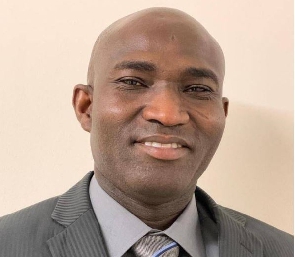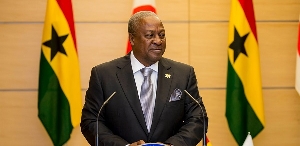Koforidua, July 28, GNA - Leaders of small and medium scale enterprises (SMEs) in the Eastern Region have expressed misgivings about the way the state's micro-credit lender, Micro Finance and Small Loan Scheme(MASLOC), is being operated, claiming that they are being starved of crucial capital needed to boost their businesses. They said in spite of repeated representations, they are yet to receive any positive response from the organization, with some alluding to political reasons as the possible cause of the denial of the resources due them. This was stated at a forum organized by the Ghana Journalists Association (GJA) for journalists in the Eastern Region, the SMEs on one hand and the management of MASLOC on the other, to help the managers of MASLOC to respond to some issues raised by the SMEs at Koforidua on Friday.
The forum is part of a business crusade by the GJA and pivots around the theme "using the media to strengthen business advocacy" and is organized in collaboration with the KAB Governance Consult and funded by the BUSAC Fund. Mr Alfred Kisi of the Tailors and Dressmakers Association said despite having made representation to the agency for the past two years, no member of the association has been given any money. Similar claims were made by Mr S.K. Mensah, representing Indigenous Business Association, said there could be some credence in the claim that only supporters of the ruling party have benefited from MASLOC funds. He said management of MASLOC must demonstrate to the public that these allegations are not true. He said many associations have gone through "disheartening moments" in seeking to acquire what is constitutionally due them.
Mr R.K Antwi of the Association of Garages said many leaders of SME associations in the region were being ridiculed by their rank and file and they have lost the confidence of their members owing to the false hope given them about the possibility of using the MASLOC credit to rejuvenate their businesses. Similar statements were made by Mr Joseph Okley, who represented the Woodworkers' Union, who said his association members are urgently in need of cash to promote their ventures.
The Chief Executive Officer of MASLOC, Mr Lawrence Akwasi Prempeh, denied any political affiliation as a consideration in granting the loans. Mr Prempeh said what had delayed the granting of the loans in many instances was the sheer numbers of applicants which have increased three fold since January 2008. Mr Kwasi Afriyie Badu, CEO of KAB Governance Consult, who moderated the forum, said public perception of MASLOC is negative, a situation which demands that management of the fund work on the communication aspects of their activities. He wondered why an initiative that was supposed to help address and spur up business culture in Ghana is now one of the most reviled state entities.
The General Secretary of the GJA, Mr Bright Blewu, reiterated the need for media practitioners to make economic reporting a core part of their work so as to help project a positive image of the country and help
bring about the investment required for the development of the country. Mr Edmund Quaynor, Eastern Regional Chairman of the GJA, assured SMEs in the region that journalists would work hard to protect their interest in order to boost employment. The advocacy project of the GJA was based on the realization that even with their low resource base, poor technical and managerial skills, SMEs collectively employ more people in Ghana than large scale industries. The project is also premised on the recognition that the industrialization drive of Ghana must be underpinned by the development of an indigenous industrial sector.
Click to view details



Regional News of Monday, 28 July 2008
Source: GNA
















